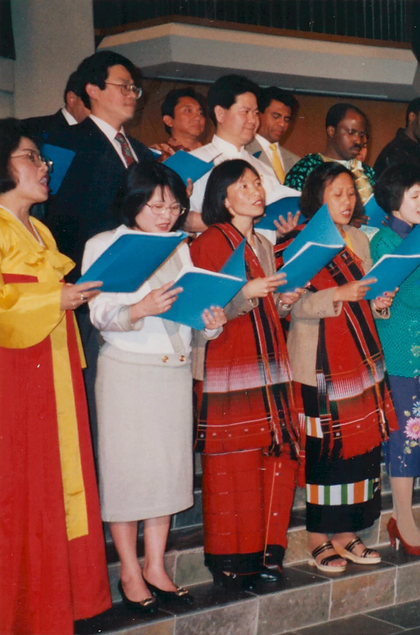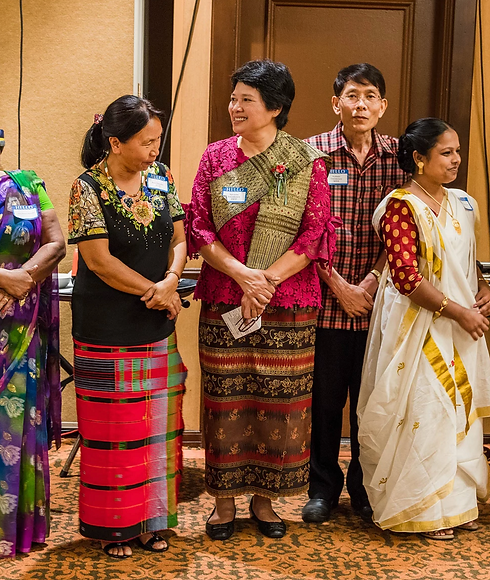
WHO WE ARE
WCCM is a bridge helping to cross racial and cultural barriers to reach developing countries for Christ
Assisting indigenous churches in becoming strategic bases for evangelism
Providing financial support and other resources to help nationals in their ministries
Meeting both spiritual and physical needs of the local people
OUR MISSION
WCCM seeks to work together with churches, organizations, and individuals worldwide in the following areas






OUR VALUES
OUR HISTORY
1992
During his time as the Vice President of the International Theological Seminary (ITS) and Chair of its Practical Theology Department, Rev. Fred T. Cheung dedicated his efforts to assisting students who wanted to return to their home countries to serve after completing seminary training. He encouraged them to remain close to the Lord and commit their plans to Him.
Recognizing the financial challenges faced by many students from developing countries, Rev. Cheung exhorted them to trust in the Lord's provision for their needs. Simultaneously, he sought divine guidance on how to generate support to aid these students in their ministries. Eventually, the Lord revealed to him that establishing partnerships would be the optimal means to support their local ministries.


1995
After much prayer and serious thinking, Rev. Cheung and a few Christian brothers and sisters established the Worldwide Christian Churches Ministries (WCCM). Its primary purpose is to provide financial support to their ministries for the ministers/evangelists who have returned to their home countries to serve. Such ministries include evangelism and church planting, theological education and leadership training, and education and caring ministries. This paradigm takes on a holistic approach to preaching the gospel as it embraces support for both spiritual and practical aspects of the ministry using a partnership-servanthood model.
Instead of taking the lead, we partner with a servant attitude, working with our sponsored ministry directors. Rev. Cheung also believed that it would be more cost-effective and time-efficient to train and support native ministers/evangelists in their native land than to send missionaries abroad. He had seen how the strenuous demands of adjusting to a new culture and learning different languages had exacted a heavy toll on the missionary family. Consequently, WCCM takes on the approach of supporting indigenous workers instead of sending missionaries to serve in developing countries.
2004
The vision and mission of WCCM are continued after the Lord took His servant, Fred, to his heavenly home in February 2004. His widow, Freda, picked up the baton and continued on the ministry. Together with the WCCM Board and supporters, they pushed forward the ministry of sharing God’s redemptive love with people in developing countries.


2016
20th-anniversary celebration
We invited all our ministry directors from the seven countries to the US to join us in this celebration. For the celebration, we held a retreat for the ministry directors, during which they shared and prayed for each other’s ministries and their plans for the coming years. In addition, we held a Koinonia Symposium, which was opened to the public. We presented WCCM’s model of partnership with the ministry directors whom we have been supporting financially and in other ways.
On September 18th, we held our annual vision-sharing event, during which we celebrated God's faithfulness and blessings in the past twenty years with our donors and supporters. We also presented our plans for the next five years, which include ministries to Syrian refugees in Egypt and the establishment of a mobile theological training center to serve developing countries. We ended the celebration by lifting our voices to sing “Majesty, kingdom, authority, unto Jesus…”
2017
WCCM is moving forward in partnership with indigent ministers/evangelists in its vision of expanding gospel ministries in developing countries where Hinduism, Islam, and Buddhism predominate. Currently, our ministries span eight countries.
In June, a dental team served the Sudanese and Syrian refugees in Egypt. A team of teachers for the mobile seminary is being formed.




